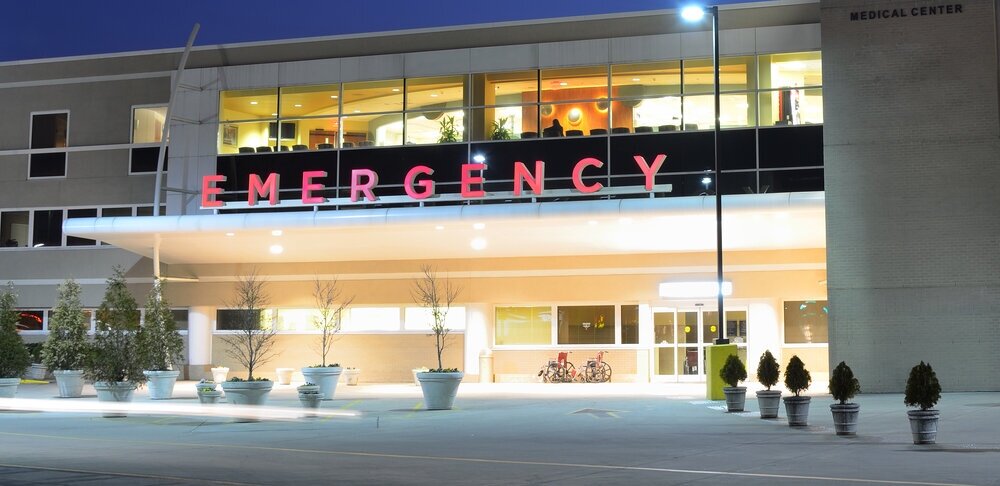Patient Safety
Discharge/Transfer
En Español | Improving care coordination after discharge from the hospital is important for the patient, for the hospital and for the health care system.
Care coordination is essential for a successful recovery, by knowing what to expect, who to call if issues arise or if you have a question, and which community services are available that can assist with the transition process, will improve our recovery.
If you believe you are being discharged too soon, you or your caregiver should inform the medical team and the social worker that you disagree with the discharge plan, you can contact your primary care provider or your insurance company and ask them to intervene. If you are a Medicare patient you can request a fast appeal, this will buy you 24 hours to contest the discharge.
Discharge Instructions Should
Describe what is the healing period is expected to be like, how long will it take to heal, and which symptoms may accompany the process.
List activities or diet restrictions that aid with recovery.
Describe how to treat any condition such as external bleeding, swelling, etc.
Provide clear instructions on how to take any new medication, including dosage, and if there are any interactions with the medication you were taking at home.
If pain medication is provided, it should be tailored for mild, moderate, and severe pain stages, giving the patient the option to start with the mildest medication.
If anesthesia was given, provide warnings of possible side effects, and describe what to expect.
Describe care management in stages: the first 24 hours, 3 days, first week, second week, and so on depending on the case.
Provide fact sheets and recent articles about the patient’s condition.
List any complementary modality that may be favorable for the healing process.
Provide a contact number in case of problems or concerns.
If there are changes in their daily living, it should:
Encourage patients to get involved in community centers that work to improvement specific ailments.
Include techniques on how to improve self-care and reduce social barriers.
Include contact information for public agencies, and/or non-profit organizations that provide support.
Discharge Checklist
CHART SUMMARY
Get copies of your records and review that there are no errors. Records can include the Hospital Discharge Summaries, Specialist Consultation Reports, and Emergency Room Findings. If you had surgery, you might need to ask for an operative report. Some records come from the nurse, others from the billing office.
MEDICATION RECONCILIATION
Thorough review of all medication should be part of discharge planning. Medication should be reconciled to ensure there are no duplications, omissions, and no harmful side effects form the pre-hospitalization medication over the post discharge list.
Clear instructions on new medications, what they are for, review for interaction, understand instructions, dosage, side effects to watch for, and schedule. Know who to call if there are any un-wanted side effects to the medications (e.g., primary care vs. surgeon).
DISCHARGE INSTRUCTIONS
HEALING PERIOD
Have a number to call in case you have questions or concerns.
What constitutes an emergency and what should be done?
What to expect and what to do in stages such as the first 24 hours, next 3 day, next 2 weeks, and moving forward?
What signs should you watch for that might indicate the healing process is not going well, or having a poor reaction, or developing an infection? Which provider should you call under those circumstances (e.g., surgeon vs. primary care)?
Which are the care problems that might occur?
Know who to call if the patient develops loss of appetite, weight loss, depression, anxiety or insomnia.
POST-OPERATIVE INSTRUCTIONS
Which are normal ways to feel after anesthesia? Which are the ways to manage the side effects?
Are there, clear instruction on how to treat wounds, swelling, drains?
Do you need to monitor any vital signs such as blood pressure, temperature? Should they be written down? When would they be of concern?
REHABILITATION
Do you need physical therapy? For how long? When do you start? Has it been scheduled? Is there a phone number to call in case it needs to be rescheduled?
Will there be a visiting nurse? Has the doctor signed the order? For how long can he or she stay?
Are there clear instructions on utilization of feeding tubes, catheters, any any other medical equipment needed?
Is medical equipment needed? Has the order been placed? Has it been filed with the insurance? For how long will it be needed?
Are there any complimentary modalities that can contribute with the recovery?
DAILY ACTIVITIES AND DIET
Which activities are beneficial to promote a faster recovery?
Do you need to follow a special diet? For how long?
Are there any restrictions on walking, eating, drinking, bathing, lifting, etc.?
How soon can you drive, exercise, resume sexual activity, return to work?
Can vitamins and supplements be taken? Which should be avoided?
FOLLOW UP
Is telemedicine available?
When will the follow up appointment be? Has it been scheduled? Who is responsible for scheduling them?
If test results are not available at time of discharge, know which physician to call in order to follow up with results.
BENEFITs APPLICATIONS
If applying for disability or worker’s compensation, has the documentation been submitted? Who can one contact if more information is needed?
REFERRALS
To transfer facilities.
For community resources such as visiting nurses, meal deliveries, transportation services, physical therapy centers, support agencies.
For medical equipment.
The following form can help you manage the information needed.
Know the Signs of:
Clots: swelling, redness or breathing difficulties. Blood clots can occur weeks after leaving the hospital. Ask if they should be walking or taking medication to prevent it.
Wound, blood or urinary tract infection: fever, redness, rashes, swelling around incision, pain, drainage from incision, and painful urination.
Internal bleeding and shock: shortness of breath, pale skin or feeling cold, low urine output, mental confusion or rapid breathing.
Discharge Summaries Include:
Informed consent documents
Surgical Notes
Therapy Notes
Medical Tests and Results
Billing records
List of Prescriptions
Instruction given
Appointment visit notes
Doctors notes
Orders
resources
Phone: (800) 677.1116
They provide information about different services.
Toll-free Phone: (888)317.0751
Local Phone: (813) 280.8256
To file complaints if you consider an early discharge is being made.
Phone: (800)445.8106
They provide resources for caregivers.




